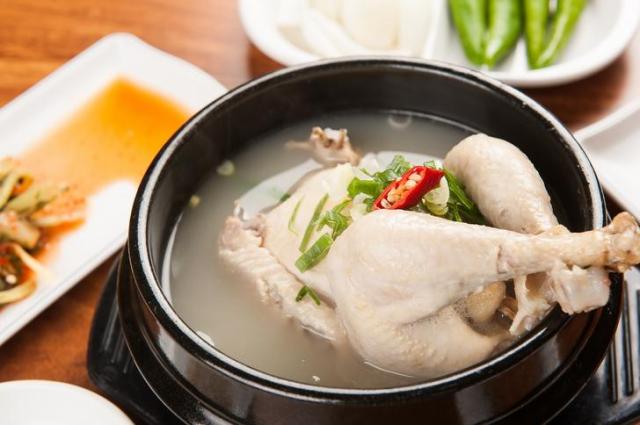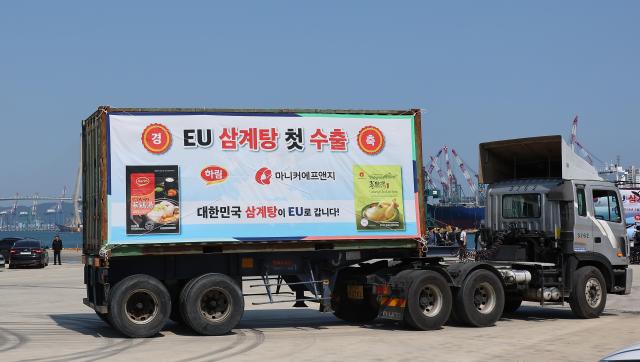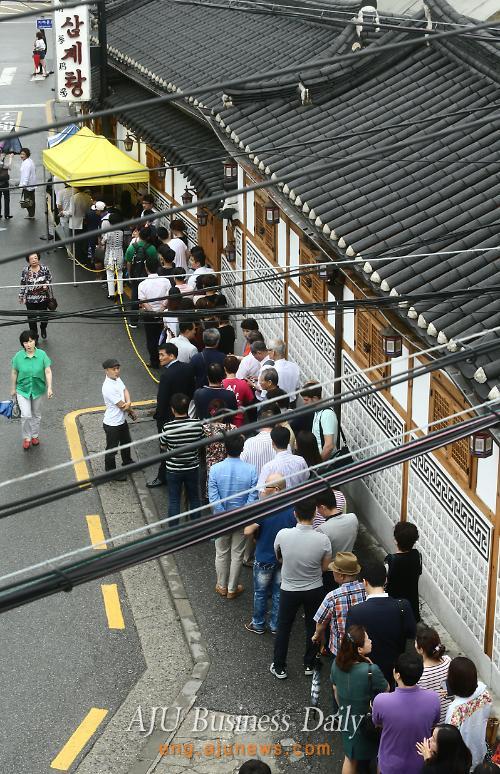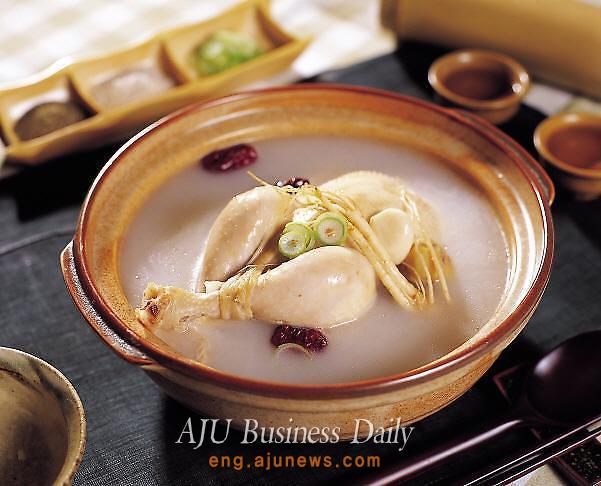
Samgyetang, which uses a young chicken filled with garlic, rice, scallion and spices, ginseng and jujube, has been consumed as a healthy food. Traditionally, Koreans ate Samgyetang to withstand the searing heat wave. The ginseng chicken soup is being exported to various countries including the United States, Canada, the United Arab Emirates (UAE), and Japan.
Government data showed that South Korean heat-treated poultry products such as Samgyetang, dumplings, and frozen chicken were exported to 28 countries including the U.S. and Japan as of 2022, recording $20.3 million in exports.
South Korea started quarantine and hygiene negotiations with the European Union (EU) in 1996 for the export of heat-treated poultry. However, negotiations stalled in 1998 as the country failed to meet the EU's import requirements. During that period, South Korea suffered from frequent incidences of highly pathogenic avian influenza. A global food safety management system "hazard analysis critical control point (HACCP)" was not introduced in the domestic food industry at the time. After improving the quarantine and surveillance systems for avian influenza and adopting the HACCP, South Korea resumed the negotiation process with the EU in 2013.
The food safety ministry and agriculture ministry jointly said all negotiation processes for exports of heat-treated poultry products were completed. "We expect exports of heat-treated poultry to 27 members of the EU will attract an additional $20 million," the food ministry's imported food policy bureau senior manager Song Seok-ok told Aju Korea Daily on December 27.
Thanks to the Hallyu (Korean cultural wave), the popularity of Korean food has increased overseas. In 2019, the UAE government allowed South Korean food processing company Jayeonilga to ship the halal-processed Samgyetang. Halal-certified food products are considered safe and clean under Islamic standards.
Copyright ⓒ Aju Press All rights reserved.





View more comments